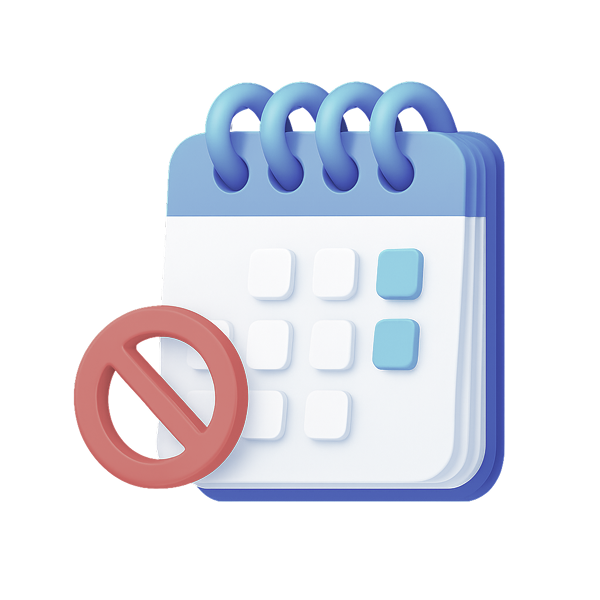Webinars and Events
Stay updated with our latest events, including webinars, conferences, and business competitions. We would love to see you at our next conference or webinar!

-


No Upcoming Webinars & Events Yet
Stay connected for future announcements!
-

Everyone Reading 2026 Annual Conference on Dyslexia and Related Learning Disabilities
Visit websiteMarch 2-3New YorkUnlocking Literacy: Foundational Reading Skills for Adolescent Success (Room 8400)
March 2, 3:30 - 4:40 PMPresentation Focus: Leadership in Literacy; New Technologies/Innovation; Tier 1 Literacy Strategies; Intervention Strategies. This session equips educators and instructional leaders with strategies to advance students beyond foundational reading skills, preparing participants for the complex literacy demands of college and career readiness. Participants explore how to foster advanced reading competencies, such as critical thinking, synthesizing information, and applying knowledge across contexts.
Speakers

Amy Truex
M.D.E., Literacy Specialist
-

-

Literacy Research Association (LRA)
Visit websiteDecember 3-6Las Vegas, NVWhat is the Decoding Threshold and How to Cross It: Implications from ReadBasix Data Exploring a Morphologically-Based Word Reading Intervention to Support Multilingual Middle School Readers
December 5, 12pm-1pmSpeakers

Dr. Margaret Opatz
Director of Literacy and Research

Dr. Tenaha O'Reilly
Managing Principal Research Scientist at ETS

Dr. Zuowei Wang
Senior Research Scientist at ETS
-

National Council of Teachers of English (NCTE) Annual Convention
Visit websiteNovember 20-23Denver, CODriven by Dreams: Bold Strategies for Teaching Young Adult Literature
November 20, 2025, 1:00 PM - 2:15 PM MSTSpeakers

Dr. Margaret Opatz
Director of Literacy and Research
Dreaming Boldly: The Transformative Power of the ILA Children's and Young Adult Book Awards
November 21, 2025, 3:30 PM - 4:45 PM MSTSpeakers

Dr. Margaret Opatz
Director of Literacy and Research
Preparing Preservice Teachers to Advocate Boldly for the Right to Read
November 22, 2025, 11:00 AM - 11:30 AM MSTSpeakers

Dr. Margaret Opatz
Director of Literacy and Research
-

Annual New York State Reading Association (NYSRA)
Visit website11 November 2025New York StateCollaborate to Accelerate: Diagnostic Tools and Leadership for Literacy Success
November 11, 11:50am-12:50pm ESTSpeakers

Ryan Hershey
Literacy Specialist

Amy Truex
Literacy Specialist
-

Ohio Middle Level Association (OMLA) Annual Conference
6-7 November 2025Sandusky, OhioVisit websiteThe Ohio Middle Level Association is proud to host the 2025 annual state conference at the Kalahari Resort and Conference Center in Sandusky, Ohio.
Unlocking Literacy: Foundational Reading Skills for Adolescent Success
November 6, 2:00-2:50pm ESTSpeakers

Ryan Hershey
Literacy Specialist
Collaborate to Accelerate: Diagnostic Tools and Leadership for Literacy Success
November 7, 9:00-9:50am ESTSpeakers

Ryan Hershey
Literacy Specialist
-

Empowering Writers in a Digital Age
Part III: Foundation of Effective Writing Instruction: Using the Writing Workshop Framework to Inspire and Elevate Student Writing
21 May 2024Conclude the series with a focus on assessing writing proficiency and using data to drive improvement. Discover methods for evaluating student writing, providing constructive feedback, and using assessment results to inform instructional practices. Learn how to set writing goals, track progress, and implement strategies for continuous improvement in writing skills.
-

Empowering Writers in a Digital Age
Part II: Foundation of Effective Writing Instruction: Using Strategy Instruction and the Process Approach to Inspire and Elevate Student Writing
30 April 2024Learning to write is learning to think, so explicitly teaching the writing process empowers both teachers and students in an era increasingly influenced by AI. While technology offers valuable resources for writing instruction, it is essential to approach these tools through a technoskeptical stance for engaging in critical thinking and making informed choices about technology (Pleasants, Krutka, & Nichols, 2023). Educators can help students build strong critical thinking skills, enabling them to organize and communicate their ideas effectively and clearly, which is crucial in distinguishing their unique voices amidst the noise of AI-generated content. This approach not only fosters confidence but also encourages students to engage as active members of a writing community, preparing them to navigate the complexities of an AI-driven landscape.
-

Empowering Writers in a Digital Age
Foundations, Technology, and Assessment Part I: Foundations of Effective Writing Instruction
09 April 2024Effective writing instruction is pivotal for developing students' writing skills and fostering their overall literacy. This webinar will explore foundational writing principles, including the writing process, effective feedback techniques, and strategies for creating a supportive community of writers. Additionally, discover how to address sentence processing and its significant impact on both writing ability and reading comprehension. Participants will understand the importance of teaching writing as a critical thinking act that empowers students to organize and communicate their ideas clearly, ultimately enhancing their engagement and confidence as writers.
-

Implementing Multi-Tiered Systems of Support for Reading in Secondary Schools
Part III: Preparing Students for College-Level Reading
19 March 2024Once secondary students have mastered foundational reading skills, it is important to focus on supporting students in developing advanced literacy skills related to both content and disciplinary literacy that are critical for high school and college success. This webinar is designed to help educators prepare students for college readiness and academic success by equipping them with the advanced skills needed to excel in higher education. Leave the session with effective strategies for fostering these crucial skills and ensuring students are well-prepared for academic success.
-

Implementing Multi-Tiered Systems of Support for Reading in Secondary Schools
Part II: Enhancing Adolescent Literacy through Interventions and Progress Monitoring
26 Feb 2024Adolescent readers face significant challenges in becoming proficient in the literacy skills necessary for success in content-area classes. With 71% of eighth graders reading below proficiency according to the latest National Assessment of Educational Progress (NAEP; U.S. Department of Education, 2022), targeted interventions are essential. Many students struggle with foundational skills such as phonics, morphology, and reading fluency, which can affect their overall comprehension (Leach, Scarborough, & Rescorla, 2003). Addressing these issues effectively requires a focus on word-level reading to improve reading proficiency. To ensure that these interventions are effective, progress monitoring plays a crucial role. Progress monitoring is a key component of any Multi-Tiered System of Supports (MTSS) strategy, providing tools to measure students' reading performance, track improvement rates toward goals, and assess responses to instruction.
-

Implementing Multi-Tiered Systems of Support for Reading in Secondary Schools
Part I: Implementing Literacy-Based MTSS in Secondary (6-12) Schools
29 Jan 2024Existing literature on Multi-Tiered Systems of Support (MTSS) predominantly addresses its implementation in elementary schools, leaving a noticeable gap in resources that discuss the unique challenges of applying MTSS in secondary schools. This webinar will provide practical strategies for integrating evidence-based reading practices into secondary schools, setting up robust screening systems, using assessment data to inform reading instruction, and monitoring progress to ensure student success.
-

Foundational Reading Skills in Middle School
1 Nov 2023The Science of Reading continues to permeate the education world. Most of the conversations relate to foundational reading skills in the primary grades; however, the Science of Reading is not only for primary grades. In fact, the research-base provides evidence-based practices that support readers well beyond primary grades into middle school where readers confront increasingly complex disciplinary texts. It is in these upper grades where teachers can rely on the research base to better inform high-quality reading instruction.
In this webinar, we will present ways middle school teachers can build on the foundational reading skills that are developed in the primary grades. A reading researcher who is a former middle school reading interventionist will share the research and provide tangible methods that support middle school readers' achievement in reading complex texts.
-

Expanding the View of the Science of Reading beyond Phonics
11 Oct 2023The Science of Reading framework has recently gained popularity as a result of state reforms of reading instruction. In the process, the framework has been unfortunately mis-characterized as phonics-based reading instruction in K-3. In reality, however, the Science of Reading framework involves a lot more than simply knowing the letter-to-sound correspondence, and is relevant to reading in K-12 and beyond.
The Science of Reading framework is a vast, interdisciplinary body of scientifically based research about reading and issues related to reading and writing that has been developed over the past five decades by scholars from cognitive psychology, education, special education, linguistics, and neuroscience, among others.
The Science of Reading research informs how proficient reading and writing develop, why some individuals have difficulty, and how to effectively assess and teach reading and writing. Importantly, the Science of Reading has helped educators understand the cognitive processes that lead to reading proficiency while debunking various methods, such as the three cueing system, that are not scientifically grounded.
-

What to Look for in a Diagnostic Reading Assessment
13 Sep 2023It seems like every reading assessment you look at today is deemed to be diagnostic. But, what does diagnostic mean? And, what should we look for when selecting a diagnostic reading assessment. In this webinar, we will discuss the characteristics that a diagnostic reading assessment should have. You will leave the webinar with the knowledge and tools you need to make decisions when selecting a diagnostic reading assessment that best fits your needs.
-

Using the Science of Reading to Develop Word Recognition and Decoding
10 April 2023As the Science of Reading continues to inform educational practices, it is important to understand what the science says about foundational reading skills. Automatic word recognition and effective decoding skills are critical skills that lead to good comprehension. While phonics is a first step in “breaking the code,” older students require more advanced word analysis skills to be able to break apart multisyllabic words. They also require instruction that fosters automatic word recognition of academic words. Building automatic word recognition leads to comprehension as readers learn to make sense of the text.
In this webinar, hear from a researcher and 5th grade teacher on how to center instruction on word recognition and decoding practices that lead to successful reading comprehension. Transform your instructional approaches to teach word analysis skills that support older readers in being able to decode academic, multisyllabic words. Presenters will share the transformative impact of having a diagnostic assessment that measures older students' word recognition and decoding skills.
-

Using the Science of Reading to Develop Fluency
20 March 2023As the Science of Reading continues to be the focus of educational reforms, it is important to understand what the science says about foundational reading skills beyond phonics. Fluency is a critical skill that leads to good comprehension. This is because fluent reading assumes that readers are able to read with accuracy and at a rate that supports comprehension. A fluent reader automatically recognizes most words on the page and does not have to devote time to sounding out individual words. This ability leads to comprehension as readers learn to make sense of the text at the phrasal level—where comprehension lives. Providing students with opportunities to build both their oral and silent fluency is critical to long-term reading success.
In this webinar, hear from a reading researcher how to center instruction on fluency practices that lead to comprehension. Transform your instructional approaches to teaching fluency to include engaging and motivating practices that build fluency. Presenters will share the transformative impact of having a diagnostic assessment that measures silent reading fluency
-

Using the Science of Reading to Develop Sentence Processing Skills
28 Feb 2023As the Science of Reading continues to inform educational practices, it is important to understand what the science says about foundational reading skills. Sentence level processing skills are critical for skilled comprehension. While comprehension is often focused on at the passage level, comprehension is built at the phrasal and sentence level. Older students require support in making sense of the relationships either explicitly or implicitly marked in sentences.
In this webinar, learn how to center instruction on sentence-level processing skills that lead to successful reading comprehension. Transform your instructional approaches to support older readers in being able to make sense of phrasal and sentence level relationships. You will hear about the transformative impact of having a diagnostic assessment that measures older students' sentence processing skills.
-

Using the Science of Reading to Develop Vocabulary and Morphological Awareness
18 Jan 2023As the Science of Reading permeates education and politics, it is imperative to expand our understanding of what the science says beyond phonics. One aspect of the research that is clear is the need for word analysis instruction that builds word knowledge. This is especially important given that word knowledge highly impacts reading comprehension. Providing students with robust word analysis instruction that fosters both word and morpheme knowledge leads to success as students strengthen their understanding of language and make connections across words and concepts independently.
In this webinar, hear from a reading researcher how to center instruction on word analysis using practices that foster word consciousness. Transform your instructional approaches to teaching vocabulary and morphology to include general academic words and morphological aspects of words. Presenters will share the transformative impact of having a diagnostic assessment that measures vocabulary and morphology.





